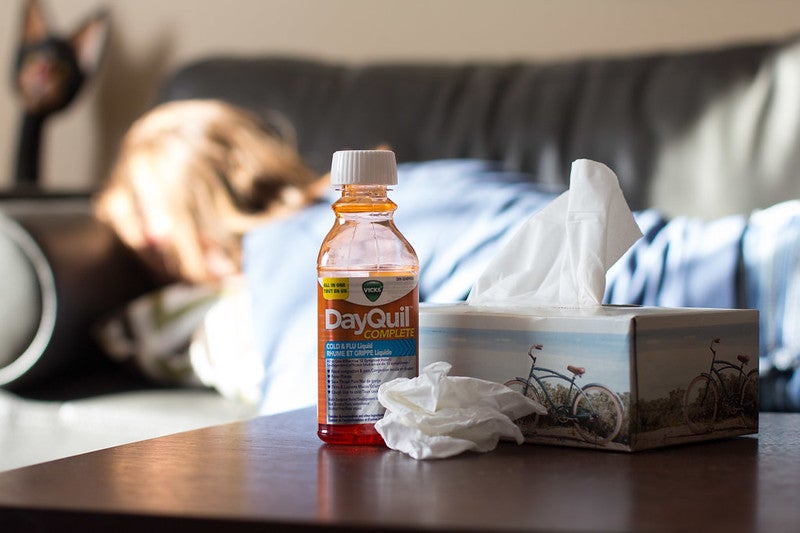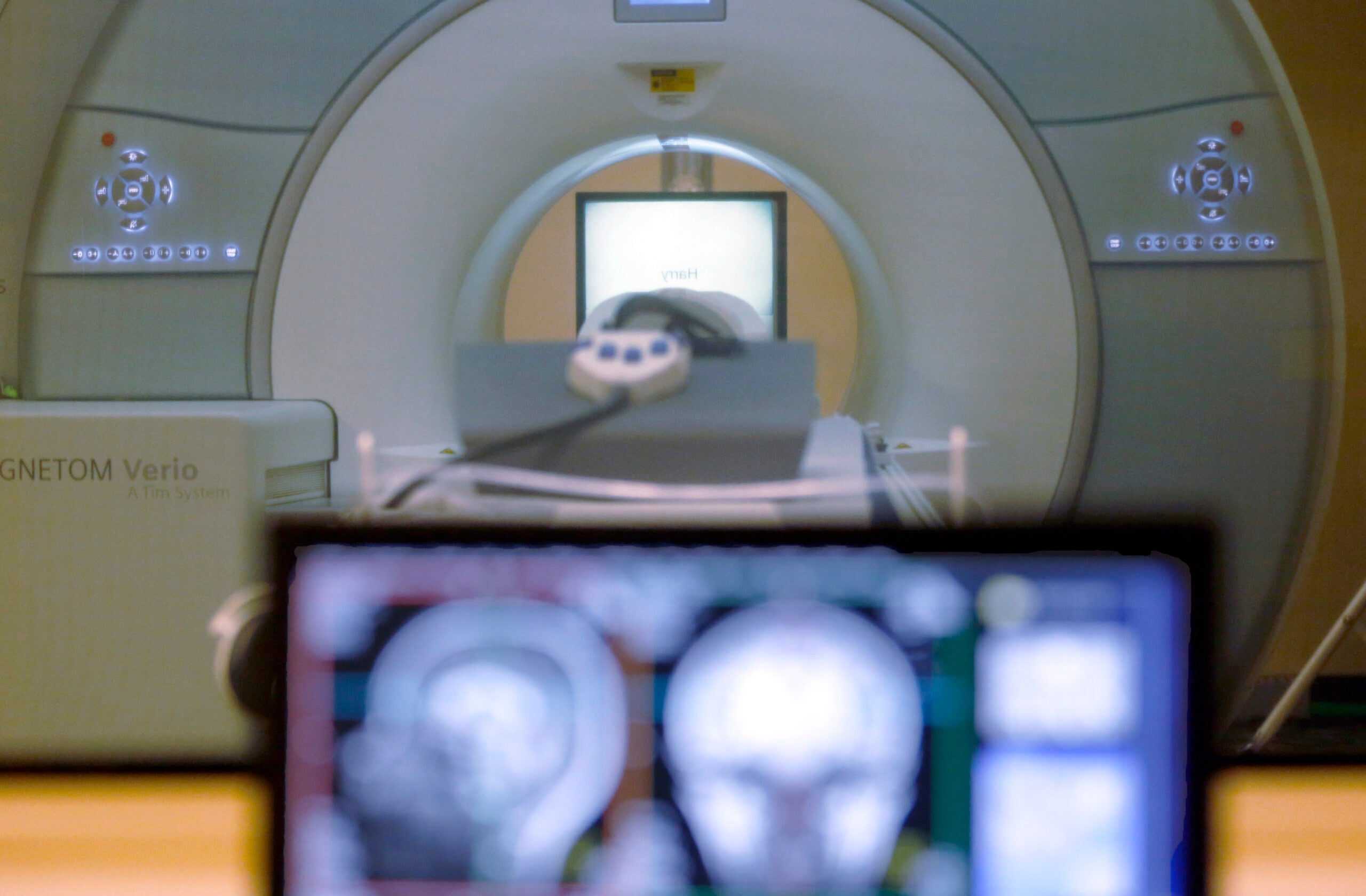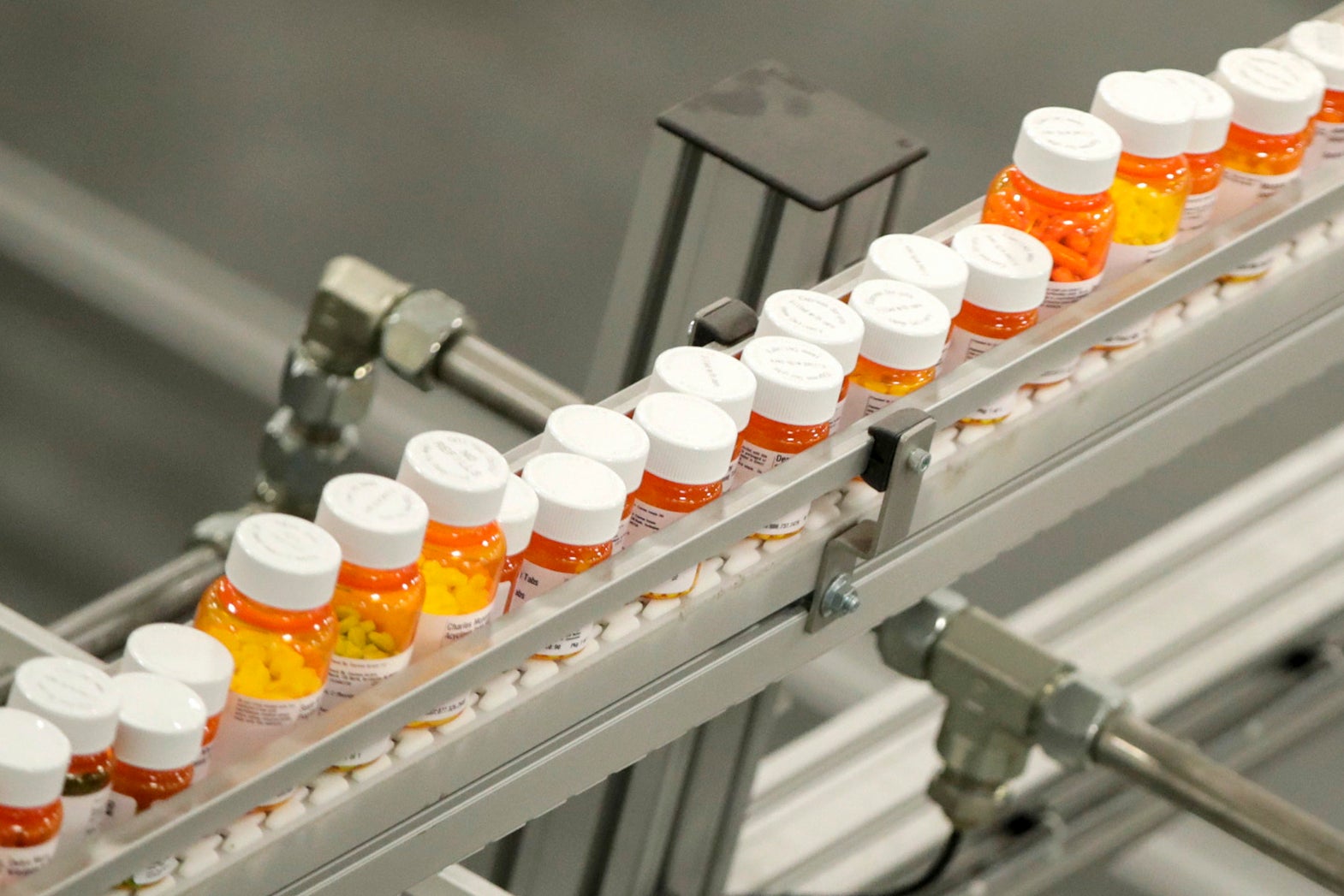Amid Wisconsin’s fall allergy season, an advisory panel to the U.S. Food and Drug Administration is questioning the effectiveness of a popular ingredient in allergy and cold relief medication.
Phenylephrine is used in over-the-counter medicines such as Dayquil, Sudafed and Benadryl Allergy Plus. This month, following petitions by University of Florida researchers, an FDA panel concluded the drug fails to reduce nasal decongestion any more than a placebo.
Dr. Ryan Feldman, a pharmacist with the Medical College of Wisconsin, recently joined Wisconsin Public Radio’s “The Morning Show” to discuss the new findings and its implications.
News with a little more humanity
WPR’s “Wisconsin Today” newsletter keeps you connected to the state you love without feeling overwhelmed. No paywall. No agenda. No corporate filter.
The following was edited for clarity and brevity.
Kate Archer Kent: Are you surprised by the FDA committee’s recent findings on phenylephrine?
Ryan Feldman: I actually am not. I think those who work in the pharmacy field might not be surprised either. This isn’t the first time that the efficacy of phenylephrine has been challenged. It’s simply the first time that it was ruled or voted on that it is likely that phenylephrine was ineffective.
In 2007, a group of pharmacy researchers from the University of Florida actually petitioned the FDA to analyze phenylephrine efficacy. At that time, it was determined more research was needed and that phenylephrine might work. It still wasn’t a very positive review.
Then in 2015, another petition was made to reanalyze the data after more data had come out. That kind of brought us to today where the panel has met again and after looking at the data, has found it actually doesn’t seem to be better than a placebo for the indication of acute nasal congestion.
KAK: What exactly is phenylephrine?
RF: Phenylephrine is actually a very useful drug in operating rooms and emergency departments where we use it intravenously to squeeze the blood vessels and raise people’s blood pressure. The idea for nasal congestion was that you could take it orally and it would constrict the blood vessels in the nose. If you constrict them, then air will move more freely through the nose.
Unfortunately, when you take it orally, a very large amount of it does not get into the bloodstream. There’s a question as to whether it really has any effect at all because so much of it gets metabolized before it gets into your body.
KAK: The Food and Drug Administration panel was testing the oral application of this drug. What does it mean for nasal decongestants?
RF: Oral administration is the really important thing to talk about here because there actually are a number of intranasal versions of phenylephrine. The efficacy is not being questioned (of intranasal versions) because you can get high enough concentrations.
It’s actually sort of an interesting story with nasal decongestants. There were three oral nasal decongestants on the market. One of them was actually removed. It was called phenylpropanolamine. That was after the FDA reviewed safety data, and they found that phenylpropanolamine was actually causing a number of head bleeds, which obviously is not something that we want to happen when you’re taking an over-the-counter medicine.
The FDA looked at the safety data for that nasal decongestant and determined that the risk was too high, and they removed that one from the market. Now, that left us with two nasal decongestants: pseudoephedrine and phenylephrine.
Pseudoephedrine in 2005 was put behind the counter, meaning you had to go to a pharmacy and usually you have to present them with a form of ID and you buy it from behind the pharmacy counter. That was because pseudoephedrine has been used in the production of illicit substances.
That kind of left us with the only readily available oral nasal decongestant that you could buy right off the shelf…phenylephrine. It doesn’t mean that it’s the only nasal decongestant available. There’s many other types like nasal sprays, antihistamine nasal sprays, steroid nasal sprays and saline nasal sprays. All of these can help with nasal congestion depending on the sources.
Then there’s also antihistamine oral tablets, which can help dry up mucus secretions that lead to nasal congestion. There are actually quite a few therapeutic options still available, including an oral nasal decongestant that will shrink the blood vessels called pseudoephedrine that simply needs to be bought behind the pharmacy counter.
KAK: Should people throw away medication containing phenylephrine?
RF: Right now, the Nonprescription Drugs Advisory Committee voted that phenylephrine does not appear to be effective based on the evidence. But that’s not the final ruling. The FDA still needs to consider this advisory committee’s ruling and take public opinion, so there will be a time for public comment. After considering both public comment and the advisory committees rulings, then they would have to give a final ruling, so nothing has happened yet.
Phenylephrine is still on the shelves. People can still take it, but it’s just likely that it’s not going to have a very significant effect if the FDA does rule that it is not a generally recognized as safe and effective drug. Then they’ll be working with manufacturers to remove phenylephrine from their products.
It’s not necessarily going to be a strip all the pharmacy shelves of phenylephrine as soon as possible. There were certainly no concerns regarding its safety. There’s not necessarily a downside beyond the fact that the drug simply won’t work based (on) the available evidence or what we’re trying to treat, which is nasal decongestion.
KAK: The Consumer Healthcare Products Association, a trade group representing manufacturers of over-the-counter medicines, says phenylephrine is effective. What about the conflicting guidance here?
RF: Effectiveness all depends on what you’re measuring as effective. I think we do have to recognize the Consumer Healthcare Products Association is funded almost entirely by drug companies. It is a trade group, and it’s the drug companies that sell phenylephrine. Of course, they are far more likely to find research that benefits phenylephrine than not, as opposed to independent researchers who assess things more objectively.
I do know the Consumer Healthcare Products Association did their own analysis of data, which was presented to the FDA at some of these petitions. It came to different conclusions from the pharmacist researchers who initially petitioned the FDA and both were considered. But we still have this result that has occurred.
You can sometimes make statistics look however you want, as I’ve been told, and I’m not saying that that is necessarily what has happened, but it is possible to look at the same thing and come to two different conclusions.
I know the (association) looked at nasal decongestion within one hour… The citizen researchers who petitioned looked at nasal decongestion within four hours. There is some smaller, potentially weaker data that was identified in the original petition in 2007 that showed there might be some weak effect of phenylephrine. It just hasn’t panned out in many of the larger studies that were done afterwards.
KAK: A placebo pill would be something like a sugar pill without medication. Bring us to a better understanding of the power of the placebo effect.
RF: That’s exactly what it is. It’s something to make you believe that you’re taking medication. In fact, the placebo effect is very real. If you give somebody a sugar pill and tell them it’s a medicine, depending on what you’re telling them, about 30 percent or so might actually feel a treatment effect from it.
It’s a way that we test whether or not a drug is actually having an effect. Because if it does what we think it should, you should be able to reliably reproduce the effect in the body over multiple observations in multiple different populations, and it should be more pronounced than the placebo tablet. Unfortunately, we did not see that in the specific tests that were done with phenylephrine.
Wisconsin Public Radio, © Copyright 2026, Board of Regents of the University of Wisconsin System and Wisconsin Educational Communications Board.







